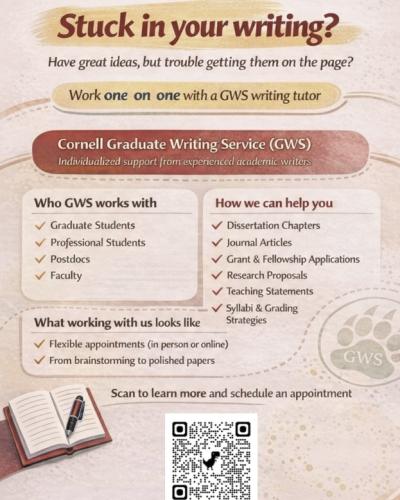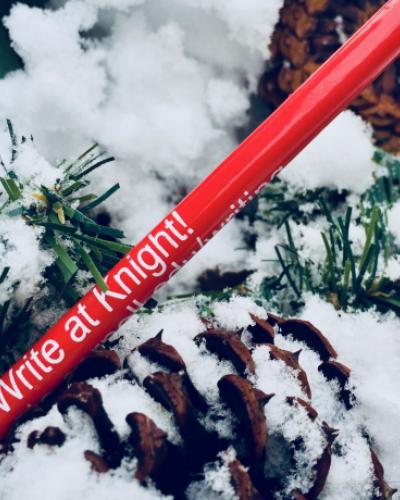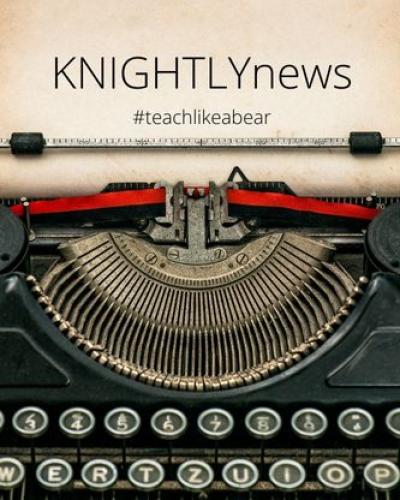The KNIGHTLYnews is an online forum where FWS instructors and other teachers of writing can swap and share ideas for best classroom practice. Weekly posts are designed to help teachers develop lesson plans and writing assignments, and respond to classroom challenges by introducing new teaching tools and sharing emerging pedagogical ideas. Posts also direct readers to program and campus resources that support teaching and learning, and provide opportunities for peer collaboration and mentorship. #teachlikeabear
In 2019, when then graduate student Elizabeth Lombardi applied to teach a First-Year Writing Seminar in Ecology and Evolutionary Biology, she wanted to design a course “that connects scientific information about climate change to the personal experience of being a human experiencing it.” Lombardi offered “Disappearing Ice and Snow: Writing about Ecological Change” twice before she graduated in 2022. As part of her course, Lombardi’s students analyzed publicly available data generated by the scientists at the Rocky Mountain Biology Laboratory (RMBL).
Teachers interested in designing writing assignments using Lombardi’s approach can learn more from “Climate Change Data in the Biology Classroom: Leveraging Long-Term Phrenology Field Experiments to Teach About Change in Mountain Ecosystems,” published in November, 2025 in CourseSource, a peer-reviewed journal that publishes “evidence based teaching resources for undergraduate biology and physics.” The article doesn’t just report about Lombardi’s classes: it offers templates that can be adapted by instructors for use in a variety of college (or high school) classes. (Link to the article is below).
Lombardi is the lead author of “Climate Change Data…” but, as is typical in science publications, the article was a collaborative effort. Three of Lombardi’s co-authors—Drs. Jennifer Reithel, Brian Inouye and Nora Underwood—are affiliated with the Rocky Mountain Biology Lab. In Lombardi’s words, “They lent pedagogical experience in a field station context, organismal expertise from the field experiment, and data curation.” Two other scientists—Dr. Jansen Smith and PhD candidate Joseph Kleinfeld—drew on their research and teaching experience to “to ensure that the resources are flexible, modular, and can be tailored to specific courses.” Elliot Shapiro (the author of this Knightly News piece) was Lombardi’s teaching mentor. He helped her design and revise the assignment sequence each time she taught the course. As the team drafted the article, he helped contextualize her work within the teaching of writing.
A small number of First-Year Writing Seminars are offered in scientific fields each semester. Most FWS’s are funded by resources pooled by the Knight Institute and individual departments. In Lombardi’s case, the opportunity to teach an FWS came via the Knight Institute’s Buttrick-Crippen fellowship, which she was awarded in 2020. The Buttrick–Crippen provides financial support that allows a graduate student to design and teach a First-Year writing seminar of their own design. Given the generosity of the fellowship, it is no surprise that a large number of highly qualified applicants submit amazing proposals every year.
Congratulations to Elizabeth Lombardi and her co-authors on the publication of their teaching and research.




